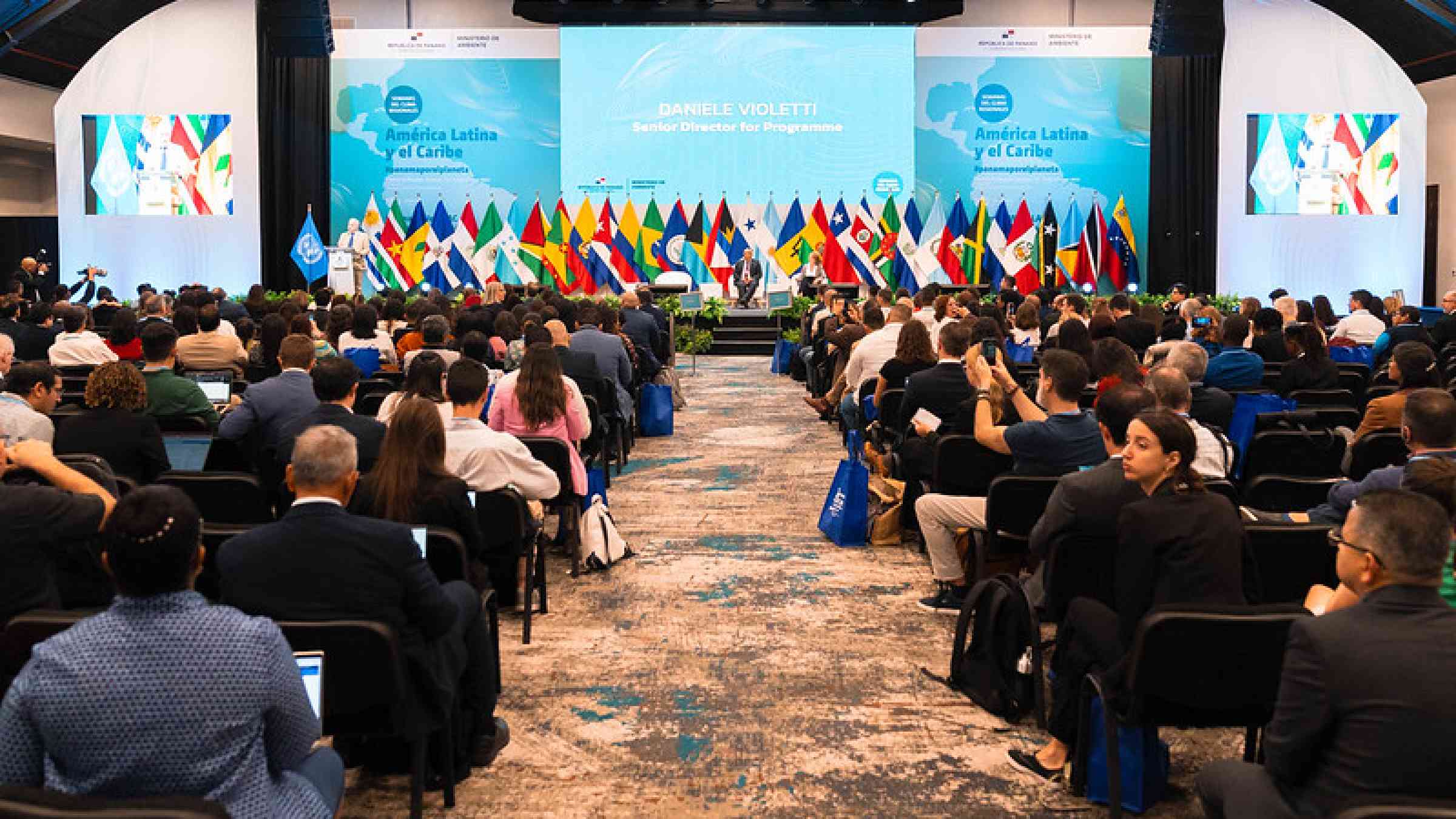From data to resilience: experts will meet in Panama to discuss meteorological and hydrological services crucial role and promote further early warning system coverage

The world's eyes turn to Panama City as global leaders, experts, and stakeholders converge for a high-level symposium on the significance of Meteorological and Hydrological Services (NMHSs) in Latin America and the Caribbean. This symposium, held on October 24, 2023, is part of the Latin America and the Caribbean Climate Week 2023 (LACCW 2023) and is organized by the World Meteorological Organization, the United Nations Office for Disaster Risk Reduction, the United Nations Environment Program and the Inter-American Institute for Global Change Research.
National meteorological and hydrological services play a crucial role in safeguarding the environment, people, and preventing disasters across Latin America and the Caribbean. These services provide essential data and information for managing environmental concerns, watershed and ecosystem management, forest fire prevention, marine pollution combat, climate services, and greenhouse gas monitoring. Additionally, NMHSs contribute to key sectors such as agriculture, water resources, and energy production, enhancing resilience against climate risks.
However, despite their vital role, NMHSs often lack the international visibility and support they deserve. To address this, the United Nations is actively promoting NMHSs on international platforms, including regional Climate Weeks sponsored by the UNFCCC. “We embark on a journey towards a more weather-ready and climate-resilient Latin America and the Caribbean. By working together, we can harness the power of science and technology to mitigate the impact of extreme weather events”, said Julian Báez, director of the World Meterological Organization – Regional office for the Americas. Nahuel Arenas García, Chief of the United Nations Office for Disaster Risk Reduction – Regional office for the Americas and the Caribbean, underscores the critical role of multi-hazard early warning systems: “In a world facing increasingly complex hazards, multi-hazard early warning systems are our shield against disasters. Of all risk reduction and climate change adaptation measures, early warning and early action stand as one of the best-proven and cost-effective methods for reducing disaster deaths and losses.”
The information provided by national meteorological and hydrological services is a crucial component to ensure early warnings are accurate and timely. This information should be based on a comprehensive understanding of risk and be appropriately communicated to ensure communities know when and how to act.
In this sense, Elizabeth Maruma Mrema, UN Environment Programme Deputy Executive Director further highlighted the importance of open, accurate and disaggregated meteorological, hydrological and weather information to address environmental issues, and for the strategic development of sustainable and resilient infrastructure.
The UN Secretary-General launched in March 2022, the Early Warnings for All initiative which called for every person on Earth to be protected by early warning systems by 2027. This initiative is fully aligned with the 2030 global agenda and supports key Sendai Framework for Disaster Risk Reduction provisions and the Paris Agreement on climate change and the Sustainable Development Goals on poverty, hunger, health, water, clean energy, climate action and sustainable cities.
The symposium outlined several key objectives:
- Enhancing Collaborative Efforts: The event aimed to foster cooperation between NMHSs, Ministries of Environment, and National Emergency and Risk Management Offices. These partnerships would focus on enhancing information systems and early warning mechanisms, critical for responding to climate-related emergencies.
- Resource Allocation: Stressing the importance of increased resources for NMHSs to ensure systematic observations and improved coordination of early warnings with environmental and civil protection entities.
- Financial Partnerships: The symposium emphasized the importance of forging alliances with financial institutions to support NMHSs, Ministries of Environment, and Risk Management Systems. These partnerships are integral to expanding early warning systems.
- Regional Recommendations: The symposium aimed to identify key regional messages and recommendations to be incorporated into the final declaration of the XXIII Meeting of the Forum of Ministers of Environment of Latin America and the Caribbean.
This will be a unique opportunity to shine a spotlight on the indispensable work of the meteorological, hydrological, and climate community in Latin America and the Caribbean. By bringing together a diverse array of international, regional, and national authorities and experts, the event aims to foster collaboration, knowledge exchange, and a shared commitment to protecting the environment and mitigating the impact of climate change in the region.